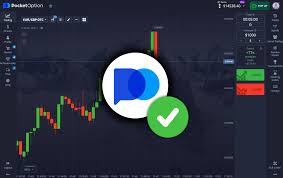
Pocket Option Regulated: Understanding the Compliance Landscape
The world of online trading is vast and complex, with numerous platforms vying for the attention of traders around the globe. One such platform, pocket option regulated pocket option regulated, has gained prominence due to its user-friendly interface and a range of trading options. However, as with any trading service, it’s crucial to understand the regulatory framework within which it operates. In this article, we will explore the regulations surrounding Pocket Option, what they mean for traders, and why compliance is essential in today’s financial landscape.
Understanding Pocket Option
Pocket Option is an online trading platform that allows users to trade binary options and forex. Established in 2017, the platform has quickly become popular among traders for its ease of use and a diverse selection of trading assets, including cryptocurrencies, commodities, and stocks. The platform offers various features, such as social trading, auto-trading scripts, and a user-friendly mobile app, making it accessible for beginners and experienced traders alike.
The Importance of Regulation in Online Trading
Regulation plays a critical role in ensuring that trading platforms operate fairly and transparently. It provides a safety net for traders, ensuring that their funds are protected and that the trading practices of the platform are in line with established financial standards. In many regions, regulatory bodies exist to oversee financial markets and protect investors from fraud, market manipulation, and other unethical practices.
Who Regulates Pocket Option?
Pocket Option is operated by Gembell Limited, which is registered in the Republic of Seychelles. The platform operates under the regulatory framework provided by the Seychelles Financial Services Authority (FSA). While Seychelles is not regarded as a top-tier regulatory zone compared to jurisdictions like the UK or the USA, it does enforce certain compliance measures that online trading platforms must adhere to.
Regulatory Compliance and Its Implications for Traders
Compliance with regulatory standards has several implications for traders using Pocket Option. First, it ensures that traders’ funds are kept in segregated accounts, separate from the company’s operational funds. This means that in the event of financial instability within the company, traders’ deposits remain secure.
Secondly, regulation often entails the implementation of robust Know Your Customer (KYC) procedures. This helps in preventing identity theft and fraud, ensuring a safer trading environment. Traders must verify their identity before they can withdraw funds, which may seem inconvenient, but it ultimately contributes to a more reliable trading platform.

The Risks of Trading on Regulated vs. Unregulated Platforms
Trading on regulated platforms like Pocket Option generally offers greater security compared to unregulated ones. Unregulated platforms lack oversight, making them susceptible to fraudulent practices. Traders may face increased risks, including loss of funds due to mismanagement, little recourse in the event of disputes, and no protection against market manipulation.
On the other hand, while regulation does provide a safety net, it’s essential for traders to conduct their due diligence. For instance, understanding the specific regulations in place and how they protect investor rights is key. Not all regulatory bodies are created equal, and the level of protection they offer can vary significantly.
Is Pocket Option Safe for Traders?
The safety of Pocket Option for traders can be evaluated through its regulatory compliance, the reputation of the regulatory body, and user experiences. Traders should research the level of protection offered by the Seychelles FSA and consider additional factors such as the platform’s historical performance, user reviews, and any past regulatory issues.
Trading Features and Tools on Pocket Option
Pocket Option offers a variety of tools and features aimed at enhancing the trading experience. These include demo accounts, which allow users to practice trading without risking real money, and a range of educational resources to help traders improve their skills.
The platform also supports social trading, where traders can follow and copy the strategies of successful traders. This feature can be particularly useful for beginners who may not yet have the confidence or knowledge to trade independently.
How to Get Started with Pocket Option
Getting started with Pocket Option is relatively straightforward. After creating an account, users can fund their trading account using various payment methods, including credit/debit cards and e-wallets. It’s advisable to begin with a demo account to gain familiarity with the platform before committing real funds.
Conclusion: The Future of Pocket Option
In conclusion, while Pocket Option is a regulated trading platform operating under the Seychelles FSA, traders should remain vigilant and informed. Regulation provides a level of safety and trust, but it’s essential to thoroughly research and understand the implications of trading on this platform. As online trading continues to evolve, so too will the regulations that govern it. Being aware of changes in the regulatory landscape is crucial for all traders seeking to protect their investments in an increasingly complex financial market.
